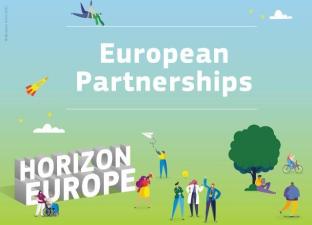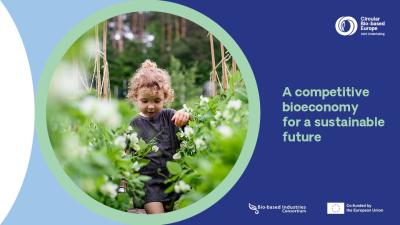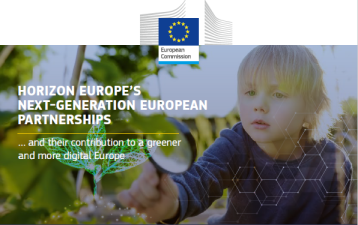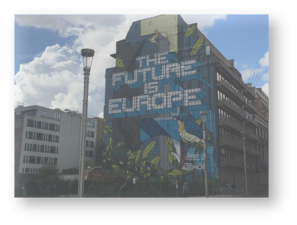European Partnerships
European Partnerships serve for the European Commission and private and/or public partners to join forces to tackle some of Europe’s key challenges through coordinated research and innovation initiatives. Horizon Europe aims to simplify the landscape of the European Partnerships and introduce a more strategic, coherent and impact-driven approach with a goal of fewer, but objective-focused and more ambitious partnerships. In this line, three types of European Partnerships are currently in place:
- Co-funded: involving EU countries, with research funders and other public authorities at the core of the consortium
- Co-programmed: between the Commission and mostly private (and sometimes public) partners; with cooperation based on a memorandum of understanding
- Institutionalised: between the Union, EU member states and/or industry; requiring legislative proposals from the Commission and implemented by dedicated structures created for that purpose
As a crucial implementation tool of Horizon Europe, they are expected to contribute to achieving the overarching EU policy objectives, coordinate with one another and ensure synergies between different funding programmes.
49 European Partnerships were included in the first Strategic Plan of Horizon Europe. In July 2023, 10 proposals for new candidate partnerships were presented, with the final portfolio of 9 new partnerships included in the second Horizon Europe Strategic Plan 2025-2027, adopted in March 2024.
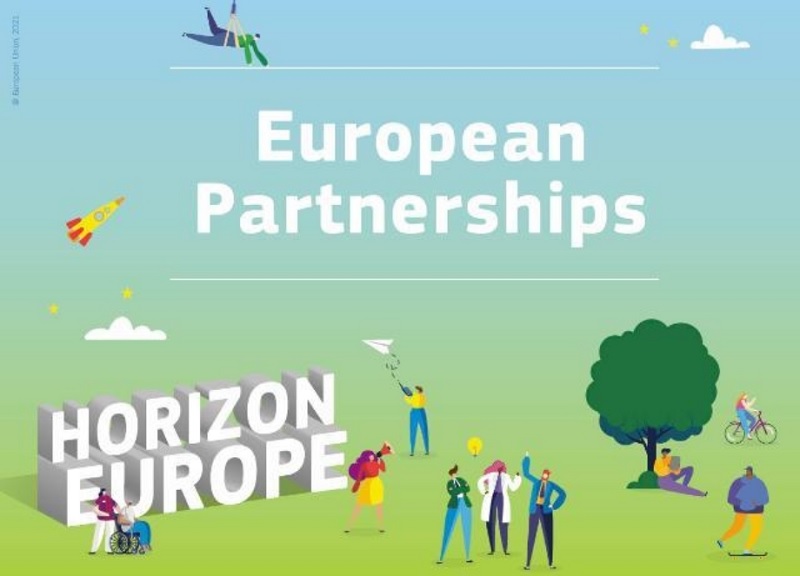
ERRIN input to Horizon programmes 2014-2027 consultation
February 2023
ERRIN's work on European Partnerships
ERRIN has been a strong advocator for further engagement of local and regional actors in the European Partnerships, and their governance structures. This is crucial for creating synergies with regional programmes, ensuring better connection to societal needs and challenges, and increasing the impact of the partnerships. We have actively participated in shaping the Driving Urban Transitions to a Sustainable Future (DUT) Partnership; and the Connected, Cooperative and Automated Mobility (CCAM) Partnership where ERRIN is currently involved. The network is also engaged in the Water4All Partnership.
- The DUT Partnership is through research, innovation and capacity-building enabling local and regional innovation ecosystems to address urban challenges, using an integrated approach. ERRIN sees the partnership as an important tool for European regions to advance urban transitions, including contributing to the EU Mission on climate-neutral and smart cities, through the involvement of their innovation ecosystems. Read more about the DUT Partnership and ERRIN’s involvement here.
- The CCAM Partnership aims to create a more user-centred and inclusive mobility system, increasing road safety while reducing congestion and environmental footprint; introduce more collaborative research, testing and demonstration projects in order to accelerate the innovation pace and implementation of automated mobility; and work together at European level to help remove barriers and contribute to the acceptance and efficient rollout of automation technologies and services.
- The Water4All Partnership (Water Security for the Planet) is a funding programme for scientific research in freshwater. It aims to tackle water challenges to face climate change, help to achieve the United Nations’ Sustainable Development Goals and boost the EU’s competitiveness and growth. ERRIN is part of the Water4All Stakeholders Advisory Group.
Other European Partnerships that are followed in more detail by ERRIN thematic Working Groups include: Built4People; Circular Bio-based Europe Joint Undertaking; Transforming Health and Care Systems; Towards zero-emission road transport (2ZERO); Zero-emission waterborne transport; Innovative Health Initiative.
In addition, in September 2023 ERRIN produced an input paper on the European roadmap on Hydrogen Valleys, calling for more dedicated support in setting up and implementing Hydrogen Valleys, as well as a stronger role of local and regional governments in the Clean Hydrogen Partnership.
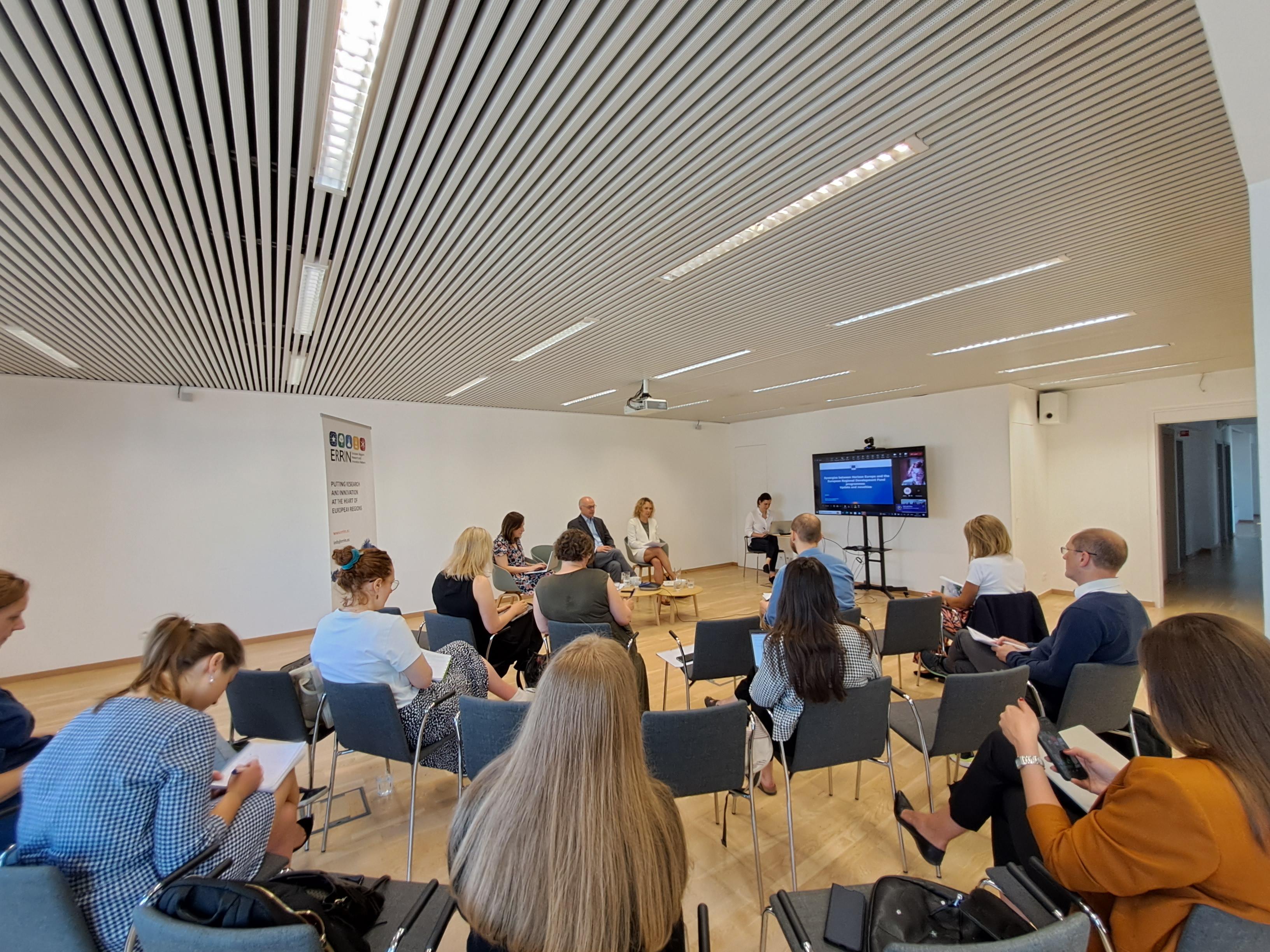
ERRIN's policy messages
To optimise the impact of European Partnerships the following points should be considered:
- Increasing transparency of all European Partnerships (composition, state of play, engagement possibilities)
- Opening up the European Partnerships to local and regional actors in a structured way beyond the co-funded partnerships
- Using European Partnerships as a way to explore funding synergies between R&I funding and structural funds and learn from the other EU funding programmes that have already started testing such an approach, in particular Digital Europe Programme and EDIHs
- Co-funded Partnerships: allowing regional authorities to join as equal partners in partnerships with national governments
- Co-programmed Partnerships: ensuring public authority engagement to make better links with actual needs on the ground, so that the new services and products developed are fit for purpose
- Institutionalised Partnerships: building on the experience of the Clean Hydrogen Partnership to ensure an effective link with regional stakeholders (Hydrogen Valleys)
